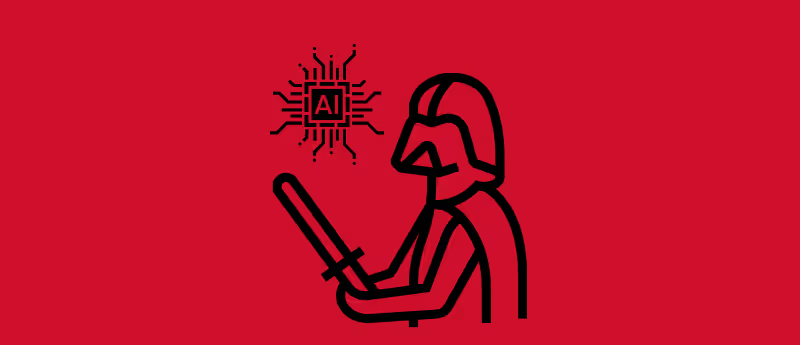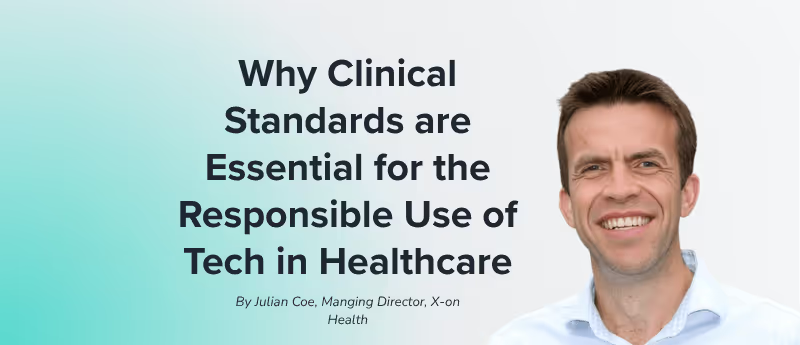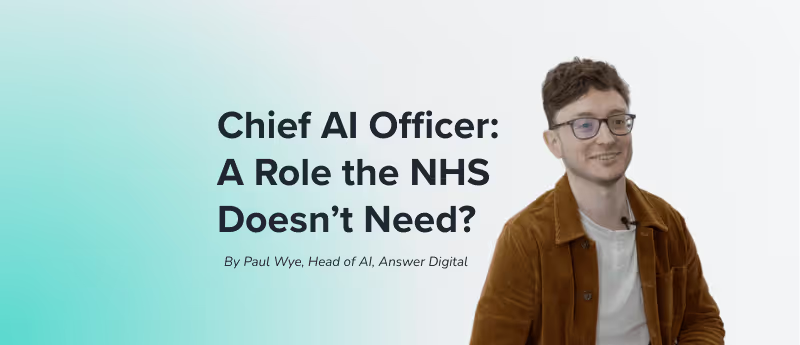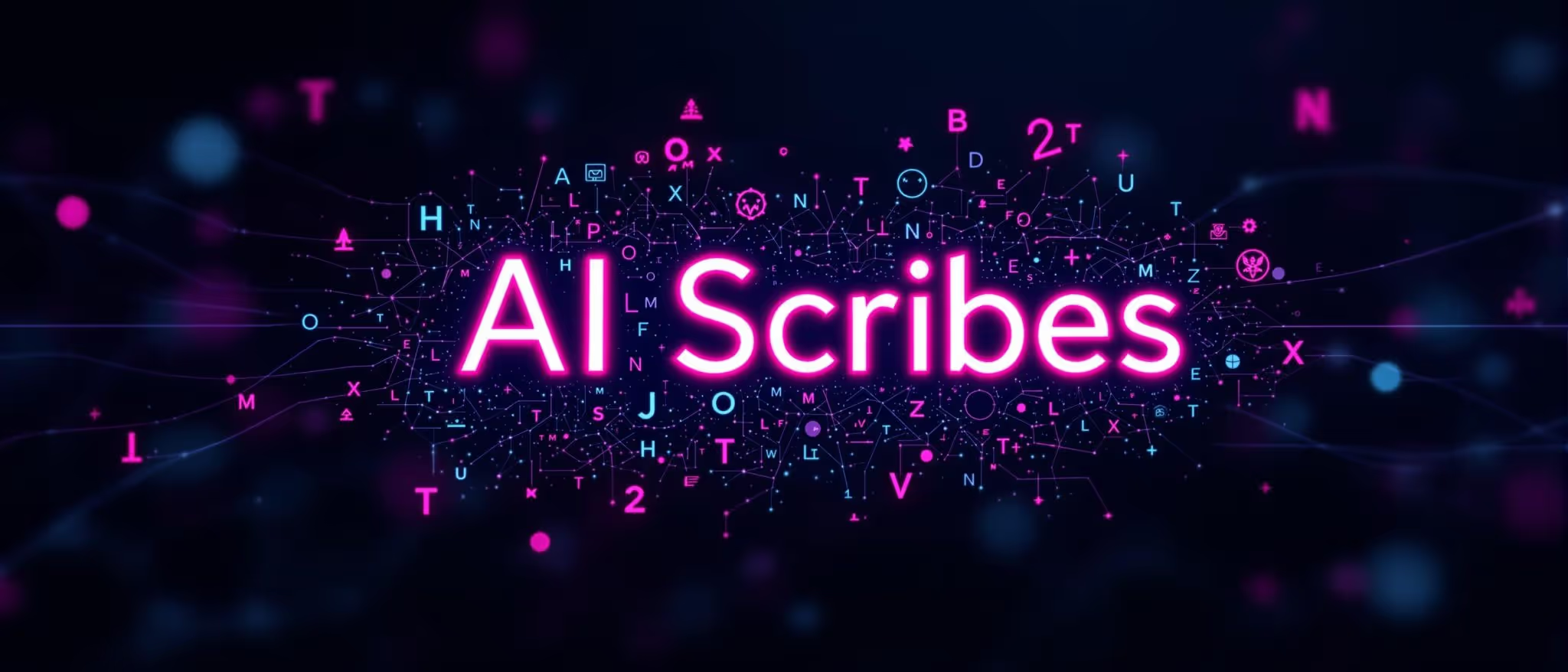The AI Summit 2023 an interview with Costas Fantis and Carlon Fitzpatrick
The AI Summit 2023 an interview with Costas Fantis and Carlon Fitzpatrick

In this interview we speak with Costas Fantis and Carlon Fitzpatrick (the co-founders of Encode Health, UK) about the dark side of AI in healthcare and their opinions on the biggest challenges of integrating AI into healthcare. This interview took place at The AI Summit London 2023 (14–15 June, London, UK).
Please could you introduce yourself and provide a brief overview of your career to date?
Costas Fantis: My name is Dr Costas Fantis and I am the CEO of Encode Health. I am a medically trained doctor and I have got a specialist interest in neurosurgery. I am currently doing research in the applications of AI in neurosurgery at Buckingham University (UK). I was previously the lead surgical officer at Touch Surgery (London, UK) where I taught surgery through an app, and what I did there was break down the steps of a procedure and glean golden nuggets of information from some of the best surgeons in the world and also interact with some of the medical device corporations and understand how they would like their particular device to be portrayed on the platform. Then we would put all that information together and animate the procedures and train surgeons internationally on the platform. Apart from that, I helped to provide remote consultations for gynecology, both in primary and secondary care, and that was in a business development capacity at Dr. Morton's and I was the only medical student in the world to own his own medical school in the form of the largest medical summer school prior to Brexit and COVID. Basically, what we did there was teach medical students how to get into the specialty of their choice, but that was before Brexit and COVID made it a little bit difficult. And apart from that I was conscripted in the military as a tank driver before I got into medicine. These experiences have inspired me to leverage technology, specifically AI, to address medical supply with clinical demand and transform healthcare delivery! Carlon Fitzpatrick: My name is Carlon Fitzpatrick. I am an orthopedic surgeon by background. I have also worked in Medical Devices, working for Johnson & Johnson, first as a Trauma Sales Consultant, then as a Biomaterials Product specialist. I have got an interest in medical education, having done a fellowship at St Thomas's Hospital (London, UK) in Clinical Education and how we use simulation in surgical training. Then I partnered with Dr Costas Fantis at Encode Health. I am the co-founder of Encode Health, Business Development Director and Clinical Liaison, looking at how we fit our products into the market.
You spoke just now at a talk discussing the dark side of AI in healthcare. What are some key takeaways from the talk?
Costas Fantis: Some of the key takeaways that I try to emphasize is that it is not actually as dark as what people are saying AI is. During the talk, some of the takeaways that emerged were:
- Ethical considerations: AI in healthcare raises important ethical questions, including privacy concerns, bias in algorithms, and the potential for overreliance on technology. We must navigate these challenges responsibly to ensure patient safety and maintain trust in AI solutions.
- Regulatory frameworks: The rapid advancement of AI necessitates robust regulatory frameworks to ensure that new technologies meet safety and efficacy standards. Collaboration between industry, regulators, and healthcare providers is essential for striking the right balance.
- Human-AI collaboration: Successful integration of AI in healthcare requires recognizing the importance of human expertise and judgment. AI should augment healthcare professionals' abilities, assisting in decision-making rather than replacing them.
There are lots of ethical considerations that we do need to take into account, and there are lots of regulatory frameworks that are coming into play right now. We have got the EU AI Act, we have got the recommendations by the Regulatory Network Council that have been developing for the last couple of years, and we have got lots of other kind of regulatory frameworks that have tried to keep up with the times. So it is not as dark as what people seem to think or try to make out. I think they are just trying to get on the bandwagon with Terminator references or something similar.
How is Encode Health contributing to the digital health field?
Carlon Fitzpatrick: Encode Health is primarily a medical device Track and Trace platform. What we are aiming to do is to take medical devices from their point of manufacture, track them digitally through supply chains into hospital or clinic inventory management systems and then onwards onto the patient and then give information about medical device turnover. So in terms of how we are contributing, one of the big hot topics, well there are two, but one is supply chain efficiency and there you can look at that from a number of ways. One is matching supply to demand of products and predicting that going forward. The other actually is working towards net zero carbon emissions and actually making supply chain much more efficient in terms of time and its environmental impact. So the two things are being able to map and track digitally and have a big impact. And then of course there is a patient safety aspect which is of key importance to me as a clinician, giving visibility to those implants in patients and improving patient outcomes, which is ultimately what is important to me. Costas Fantis: Well there are a lot of significant contributions that Encode Health is making to the digital health field by addressing certain critical pain points and leveraging AI to improve patient care. What we do at Encode is match clinical demand with medical supply. And the way that we do that is by scanning the barcodes or the QR codes of inventory that are about to be used in surgical procedures. And then we can optimise hospital inventory. And there are different ways that we can do that. We can provide alerts if there is a need for expiry dates, we can ensure that consignment contracts are being met and watched over appropriately and we can also provide a post-market surveillance component for the manufacturers themselves once a product has been inserted into a patient just to make sure that it is functioning the way that it should be functioning and so we provide that all inside of our platform. Our platform combines state-of-the-art electronic health records and phone camera inventory management software, streamlining processes for healthcare workers and enabling automated supply chain management. By anonymizing data and providing a SAAS dashboard, we optimize resource allocation and facilitate secure communication between healthcare providers and suppliers. Furthermore, Encode Health's AI capabilities allow for mobile camera scanning of implants, devices, and vaccines directly into electronic health records, providing real-time clinical outcomes. This integration enhances patient safety, enables remote monitoring, and supports clinical and vaccine trials. We are actively working with leading healthcare organizations and regulatory bodies to ensure compliance, data security, and seamless integration into existing healthcare systems.
Finally, in your opinion what is the biggest challenge when integrating AI into healthcare?
Carlon Fitzpatrick: I think there are a number probably. The biggest challenge I think is creating applications that are meaningful and impactful. Because I think we are at an AI summit now and it is clear there are millions of applications for AI, but actually choosing the ones that are going to be impactful, useful and actually tangible for those that are using them, and ones that are going to create some real clinical outcomes and changes for patients, is difficult. So certainly in what Encode Health are doing, looking at device usage and predicting device usage actually makes devices safer. What we are saying is we can track those devices to a patient, so if there are recalls, then we can manage that. If devices are not performing as well as they should do in the clinical environment, we can detect that sooner, we can make patients safer. So actually applying our algorithms to improving supply chain, improving the delivery and usage of medical devices is going to have a real impact on what the patient outcomes are. So I think that is the biggest challenge, not using AI or these technological innovations, which are fantastic, for the sake of using them, and instead actually creating real impact in the future. Costas Fantis: In my opinion, the biggest challenge when integrating AI into healthcare lies in striking the right balance between technological advancement and preserving human touch in medicine. While AI has the potential to revolutionize healthcare, we must address concerns regarding data privacy, bias and the ethical implications of relying solely on algorithms. Additionally, training healthcare professionals to effectively use AI tools and interpret their outputs is crucial for successful integration. Collaborative efforts among stakeholders, including healthcare providers, AI developers, policymakers and patients, are necessary to overcome these challenges and unlock the full potential of AI in healthcare. Providing human factors and an understanding of the healthcare pathways that are specific to each hospital and then down to each department is particularly challenging. So within the NHS, it can take a little bit of time to gain traction. Most of the ways that hospitals and departments work are through either weekly or monthly meetings and if there are such meetings that are quite lengthy, it takes a longer amount of time to actually implement a product. Trying to engage with a department that might be a little bit more nimble is probably the best way for a new product to actually gain traction within the NHS. Disclaimers:The opinions expressed in this feature are those of the interviewees and do not necessarily reflect the views of Future Medicine AI Hub or Future Science Group.
.png)
.png)
.png)



